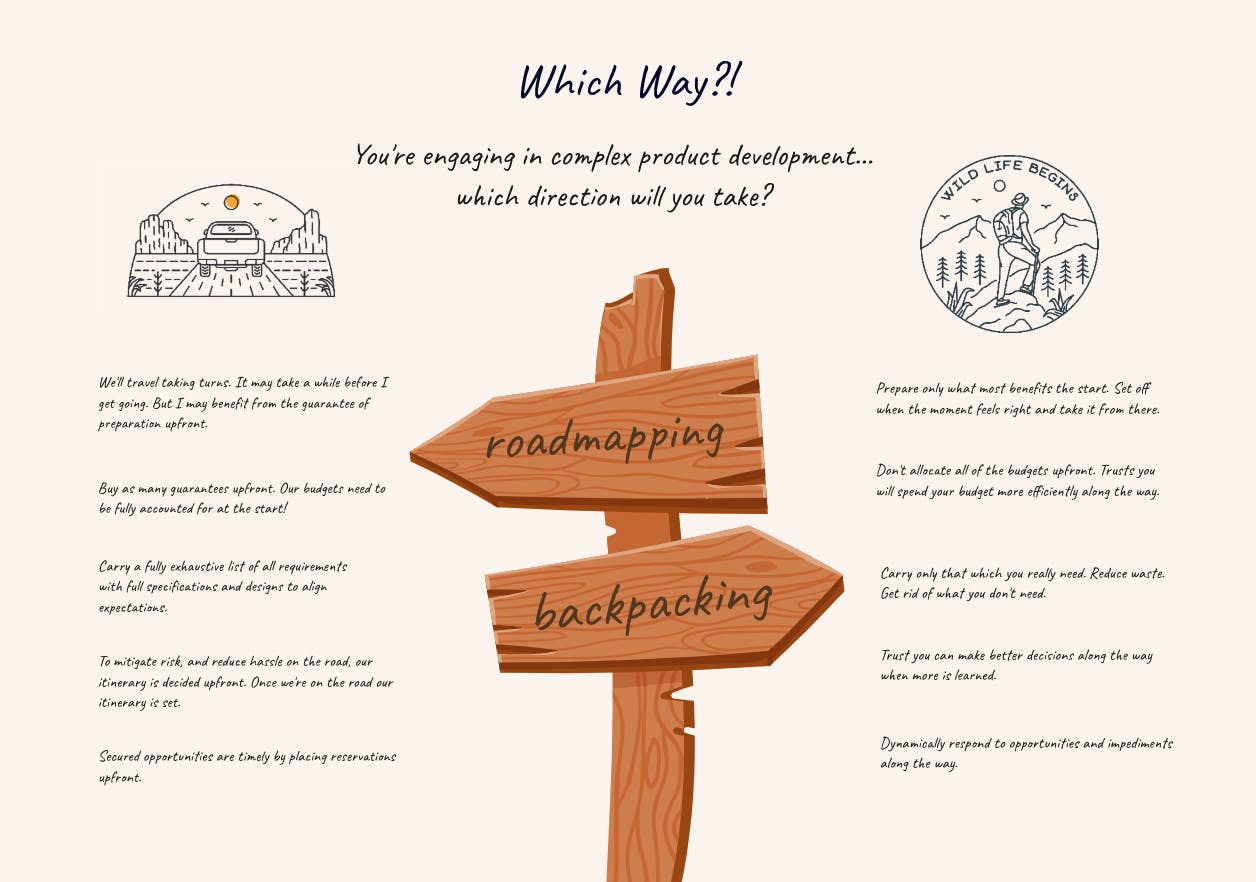

Agile is about uncovering better ways by doing it and helping others do it. This is what empiricism is about: obtaining knowledge through experience; learning by doing.
To explain the difference between “Defined Process Control” and “Empirical Process Control” we use the metaphors of Roadmapping and Backpacking. Both approaches will lead you somewhere. But when is it best to approach the vision one way or the other? it certainly depends.
With Roadmapping we ‘define’ the plan by mapping the road ahead. The map is not the terrain, however. In complex environments, one must be able to adapt to changing and unforeseen conditions. Therefore, when we approach it the empirical way, we approach the journey adaptively. This means encouraging a mindset that is willing and open to experimenting because not everything can be known upfront. One ventures into the unknown and adapt to what the journey reveals.
- One minute: Our backpackers read the statements associated with both ways. They then place their token/button in the direction that they believe their organization is currently taking.
Roadmapping:
- We'll travel taking turns. It may take a while before I get going. But I may benefit from the guarantee of preparation upfront.
- Buy as many guarantees upfront. Our budgets need to be fully accounted for at the start!
- Carry a fully exhaustive list of all requirements with full specifications and designs to align expectations.
- To mitigate risk, and reduce hassle on the road, our itinerary is decided upfront. Once we're on the road our itinerary is set.
- Secured opportunities are timely by placing reservations upfront.
Backpacking:
- Prepare only what most benefits the start. Set off when the moment feels right and take it from there.
- Don't allocate all of the budgets upfront. Trusts you will spend your budget more efficiently along the way.
- Carry only that which you really need. Reduce waste. Get rid of what you don't need.
- Trust you can make better decisions along the way when more is learned.
- Dynamically respond to opportunities and impediments along the way.

